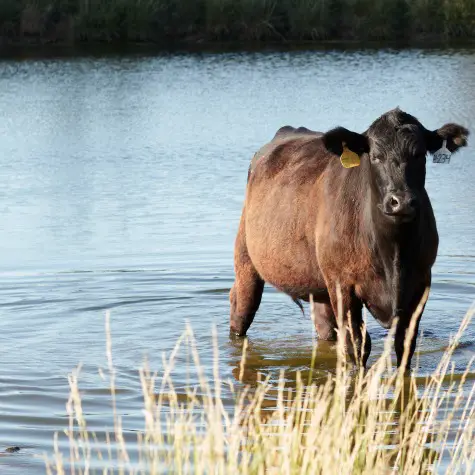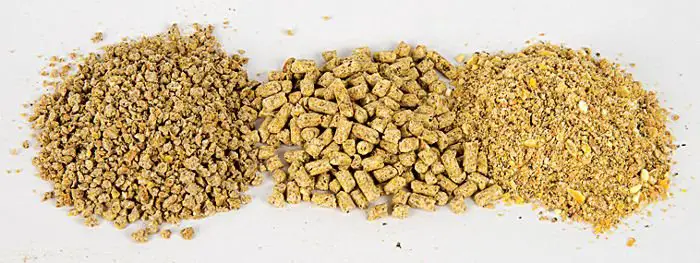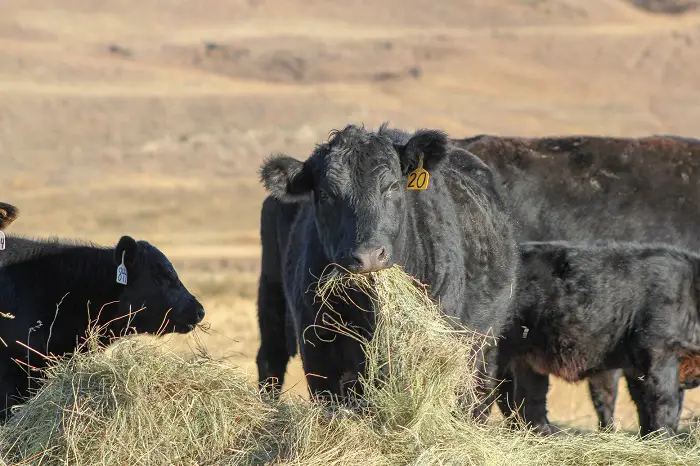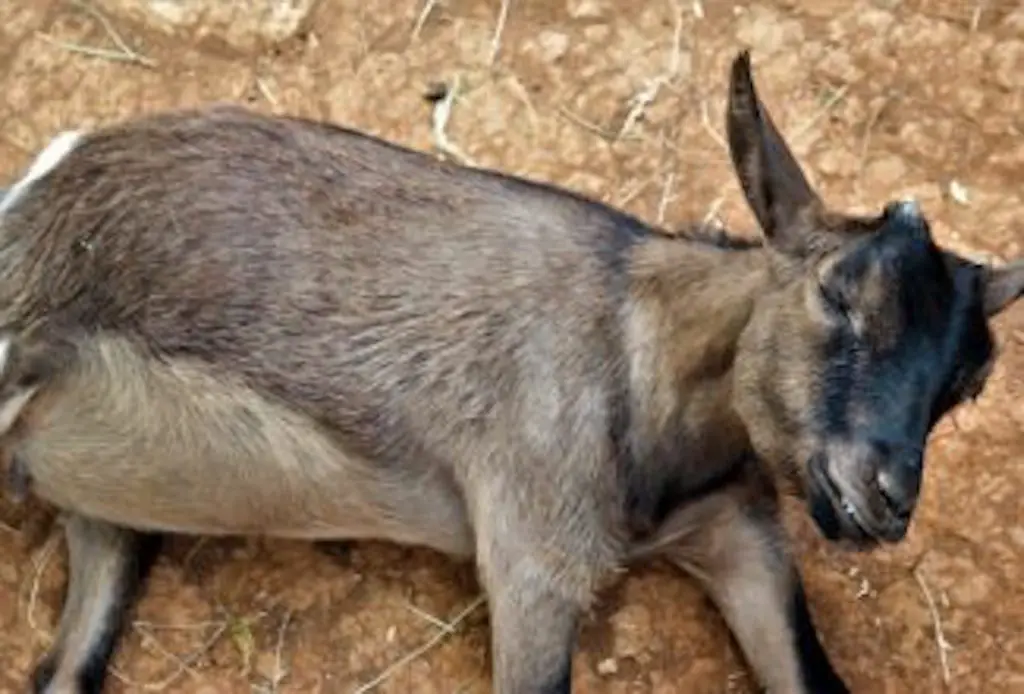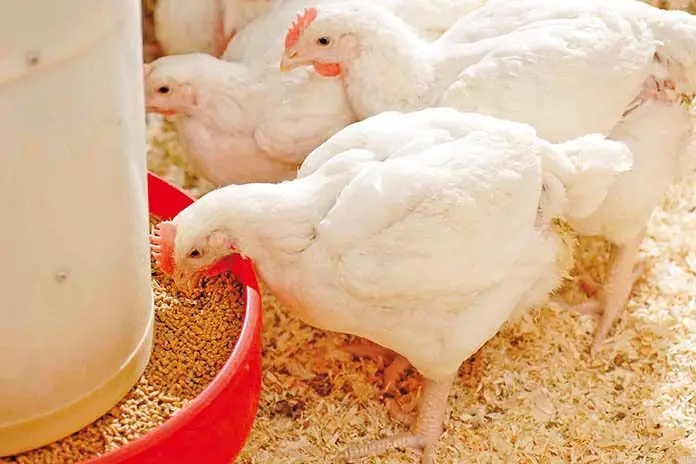With climate change taking a toll on many nations, the availability of water continues to be a problem. This has seen many farmers resorting to the use of dirty water to feed their cows. However, the greater question is, should cows drink dirty water or there are effects associated with this practice? Below we take a greater look into this matter.
Contents
Can Cows Drink Dirty Water
No, cows cannot drink dirty water, this is mainly because it contains bacteria which can make them sick. Although it’s common to see cows drinking from unsanitary water sources like ponds, rivers and puddles without getting sick, it is important to know that once these water sources get contaminated by urine or feces, pathogens that spread diseases might appear and all your cattle may get sick. While animals that live in the wild may drink dirty water without facing any adverse effects, this is a different story for domesticated cows. Wild animals rely on dirty water as their primary source of water and their immune systems have adopted. However, if you try to treat your cow like a wild animal by giving it dirty water with hopes that the immune system will adjust, then you have got it all wrong. There is a huge probability that it will get sick or die.
Effects Of Dirty Water
As previously noted in this article, cows cannot drink dirty water. Below we look at the effects of feeding your cows with dirty water.
Dehydration
One of the common effects of feeding dirty water to cows is that they will develop dehydration. This is mainly because they hate bad or smelling water and will try by all means to avoid it. However, since cows require water in order to cool their body temperatures down, an absence of it within their system can cause them to experience dehydration. Some symptoms of dehydration in cows include sunken eyes, dark urine and tenting of the skin. So in order to avoid dehydration within your cattle, make sure you provide them with adequate amounts of clean water.
Heat Stress
Another common effect of feeding your cows with dirty water is they will develop heat stress especially if it is during the summer time. Cows require clean water to cool their body temperatures down however, since dirty water contains pathogens and bacteria it may fail to cool down the animals. Therefore, in summer make sure you provide cattle with enough drinking water.
Anthrax
Cows that drink dirty water are at a great risk of contracting anthrax. This is because this disease is spread from cattle to cattle and dirty water can harbor the disease. Anthrax is a highly fatal disease that can cause massive deaths among cattle. Therefore, always ensure that clean sources of water are available.
Leptospirosis
This is a disease that causes significant reproductive losses in livestock and it is caused by the bacteria known as Leptospira which can be found in the urine of wild animals. This bacteria thrives in stagnant water and can be spread from animal to animal. If your cattle come into contact with water that is infected by this bacteria, they will get sick. In most instance, they may face liver and kidney problems. This disease can be transmitted from livestock to humans so you really need to be carefully with the type of water you provide to your animals.
Foot Rot
Another disease which your cattle may contract as a result of drinking dirty water is foot rot. This disease is characterized by an inflammation of the skin and adjacent soft tissue. It can also lead to lameness in cows. If infected cows step into their dirty water sources, there is a risk that they will live the bacteria in the water and when other animals drink from that same water source they will also develop the disease.
How To Prevent Cows From Drink Dirty Water
The best way to protect your cows from drinking dirty water is to provide them with clean sources of water. The water should be placed in a clear place so that cattle do not struggle to locate it. Furthermore, you should regularly clean the feeders so that they do not harbor bacteria. Practicing good hygiene with your cows can protect them from various diseases.
What Are The Quality Requirements Of Water Given To The Cattle?
The quality requirements pertaining to the water given to cattle is that it should be from a trusted source which is clean. It should also be changed regularly so that it doesn’t harbor diseases that can affect your cattle. Lastly, cows should have free access to water since it is an essential component of their diet.
Do Animals Get Sick From Drinking Dirty Water?
Yes, animals can get sick from drinking dirty water. Therefore, it is always important to make sure that your animals are drinking from trusted water sources. Also it is essential to test the water so as to ensure that there are no pathogens in the water which can harm your animals in the future.
Why Is River Water Unsafe For Animals?
River water is unsafe for animals because it is polluted. In most cases, different animals urinate in the water and some of these animals are wild animals that carry different diseases. Furthermore, chemical waste products from industrial process are sometimes disposed into the river and they usually kill animals.
Can Cows Jump?
Yes, cows can jump up to a maximum height of about 5 feet. This is because they are bulky in nature and if they try to jump higher than that they can end up getting hurt since their hooves and legs are very sensitive.
Can Cows Eat Meat?
Yes, cows can eat meat but in moderate amounts. This is because their stomachs are designed to digest plant material so if you give them excessive amounts of meat, their system will struggle to digest it.
Conclusion
Water is an essential part of a cow’s diet, therefore, it is your duty to ensure that your livestock have adequate amounts of it.
